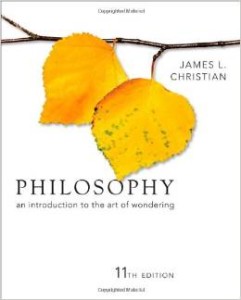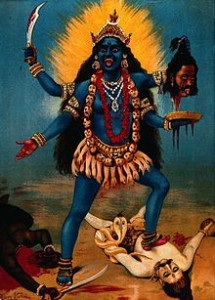 Shortly before a solar eclipse was to occur in central India, an Indian physicist—who was also a member of the Brahmin caste—was lecturing to his students at the university. He told them precisely when the event would begin and described in detail how the moon’s orbit would take it between the sun and the earth. In their city there would be only a partial eclipse, but on a wall map he pointed out the path of totality as it moved across the terrestrial globe to the north of them. They discussed such things as the corona, solar flares, the beauty of annular rings, and the appearance of Bailey’s beads during that rate total eclipse. Some of the students from the rural villages had heard stories about a Giant Dragon that swallowed the sun, but their teacher’s lucid presentation of celestial mechanics had dispelled any fears they might have felt.
Shortly before a solar eclipse was to occur in central India, an Indian physicist—who was also a member of the Brahmin caste—was lecturing to his students at the university. He told them precisely when the event would begin and described in detail how the moon’s orbit would take it between the sun and the earth. In their city there would be only a partial eclipse, but on a wall map he pointed out the path of totality as it moved across the terrestrial globe to the north of them. They discussed such things as the corona, solar flares, the beauty of annular rings, and the appearance of Bailey’s beads during that rate total eclipse. Some of the students from the rural villages had heard stories about a Giant Dragon that swallowed the sun, but their teacher’s lucid presentation of celestial mechanics had dispelled any fears they might have felt.
Having dismissed his class, the professor returned to his village and, since he was a Brahmin, assume d his duties as a priest. Around his shoulders he draped the vestments of his office and began counting through his string of beads, calling aloud the names of the gods. A goat was beheaded in sacrifice to Kali, the Black Goddess, the cause and controller of earthquakes, storms, and other evil things, and the archenemy of demons. “Glory to Mother Kali,” the priest and people chanted.
d his duties as a priest. Around his shoulders he draped the vestments of his office and began counting through his string of beads, calling aloud the names of the gods. A goat was beheaded in sacrifice to Kali, the Black Goddess, the cause and controller of earthquakes, storms, and other evil things, and the archenemy of demons. “Glory to Mother Kali,” the priest and people chanted.
While in the classroom there was nothing illogical about describing the solar eclipse in terms of celestial mechanics; neither was there anything wrong in offering a gift to the Black Goddess—just in case . . .
Philosophy: An Introduction to the Art of Wondering [James L. Christian]
